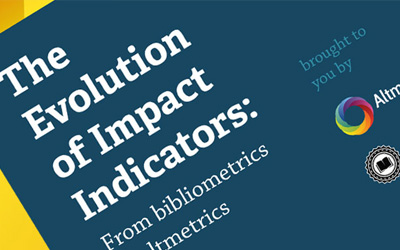
How do academics really feel about the state of scholarly journal publishing? Mark C. Wilson, a mathematician from the University of Auckland, wants to know. Wilson put together an open Google survey of “opinions on mathematical journal reform,” which he is soliciting his peers in the mathematics community to complete. He is seeking responses from mathematics journal editors, authors, and peer reviewers regarding their thoughts on current models for academic journal publishing, impact assessment, and open access and if things need to change.
While some commercial publishers have run surveys in recent years on the current peer review and publishing system, few surveys have been launched by and for academics and aimed at assessing need for change. Wilson’s goal is to get a clearer picture of what the greater mathematics community wants from academic journals and to pinpoint the primary areas where scholars believe reform is necessary. The survey, which has received over 800 responses so far, is still running and can be openly accessed by anyone via the Google form. Wilson shares more details about the survey in the interview below:
Q&A with Mark C. Wilson
Can you briefly explain your impetus for creating this survey and what the goal is?
MW: It appears that there is much dissatisfaction about the current state of research publishing. Among the ills I read about almost daily are:
- Slow and poorly executed peer review processes
- Proliferation of poor quality journals
- The uselessness of journal measures such as impact factor for evaluating researchers, and the fact that administrators don’t realize this
- Commercial publishers charging excessively for journals, and profiting from the free labour of researchers
- The restriction of access to published research to those who can’t afford to pay
- Resistance by editors and publishers to improvement and innovation
- Lack of transparency in journal operations
- Old-fashioned and inefficient pre-Internet processes
On the other hand, there have been relatively few changes made to the way we publish academic research in the last few years. It struck me that no one really has any data on how academics feel about the issues, so we are only speculating on how much appetite there is for real change. My goal for this survey is to elicit enough responses that it is clear what the overall priorities of the community are. I want to get a large and representative sample from the entire world math community. There are clear challenges in doing this, especially given my approximately zero budget. But I think it can be achieved.

Who is behind the “Survey of Opinions on Mathematical Journal Reform” and who is it for?
MW: I am behind it, on behalf of an international group of librarians and researchers interested in improving the current publishing system. As for who it is for, everyone who has acted as editor, author, referee/reviewer, or reader for a mathematical journal (broadly interpreted - roughly speaking, one indexed by Mathematical Reviews).
The survey is completely anonymous. The data will be made public as soon as I think there are enough responses (sometime later this year). I expect that journal editors in particular will find this survey useful to have a better idea of what readers, authors and reviewers think should happen.
What aspects of the publication system is the survey focused on?
MW: The survey has 3 parts: basic demographic information about the respondent; questions about how urgent the problems are with journals, which journals need the most work, and what editors should do; questions about attitudes towards open access, publication charges, peer review innovations, accountability improvements (e.g. editorial term limits, community election of editors) that journals might undertake. For example, respondents can indicate whether they support various forms of open and post-publication review, term limits for editors, or credit for referees. We also ask about which factors are important for journal reputation, because reputation is often cited as a barrier to reform.
What made you choose to focus on mathematics, specifically?
MW: It is mainly a matter of limiting the scope of the survey, because the entire world community of researchers is too big and diverse. There are tens of thousands of mathematicians alone, and it is a relatively small field. There is some reason to believe that mathematicians have different attitudes on publication reforms than biomedical researchers, who have tended to dominate in online discussions. I would be happy if others do similar surveys in other research areas to get more opinions.
What is your hope for this survey, how do you plan to use the data?
MW: I hope that the survey gets enough responses that the results are clear. If it turns out, for example, that there is large support for open access but implacable opposition to article processing charges (APCs), then this is important to know and should influence efforts to reform the current setup. Very preliminary results show much more appetite for, and openness to, some reasonably radical changes in peer review practice, for example, which I had not predicted. If there is enough data, breaking it down by continent might be revealing. There are some issues, for example Google Forms might not be viewable from China, and we will work through those somehow.
Has a project like this been attempted before? What makes this survey different?
MW: As far as I know nothing like this has been done before. Commercial publishers have done some author/reader surveys on attitudes towards open access, for example, but I know of nothing instigated by the research community itself. Of course this survey deals with much more than just open access, also.
The scope of the questions is one thing. Another is the ambition to actually do something serious to improve the status quo, without narrow commercial objectives. One purpose of the survey is to provide a place for people to have their say, and promote the “community” that is often talked about but not so often seen. Modern ideas of democracy and wisdom of crowds are not very prominent in the current journal system (in fact the entire profession has many pre-modern aspects, which in my opinion are no longer useful, if they ever were - meritocracy is fine, but we have very few objective ways of assessing merit, and it can degenerate to aristocracy and patronage).
Also, the kinds of system problems we see cannot be easily solved by individual action. Collective action is required, and we first need to get some kind of broad agreement on goals, and work out what the interests of funders, readers, authors, editors and reviewers are. These are unlikely to coincide with the interests of the traditional commercial publishers. The present journal system evolved over many decades. It is important to the research community, yet the community has relatively little control over it. Surely we can do better.






![Scholastica OA Journal Publishing Platform Overview: hosting, indexing, and analytics in one place [latest features]](https://i.imgur.com/23hAPvpm.png?1)


